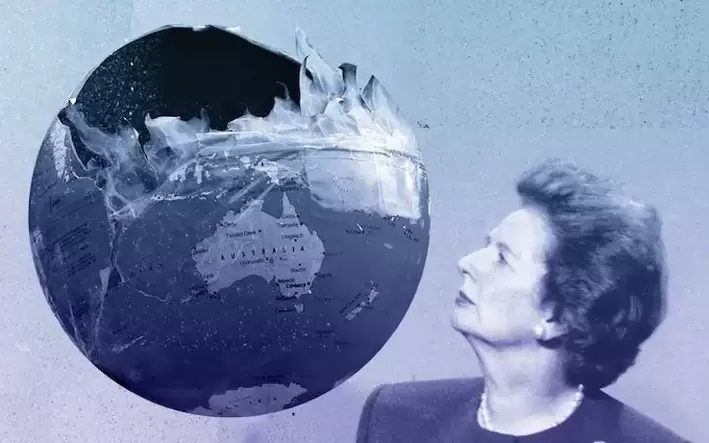
In 1989 Margaret Thatcher was the first world leader to mention global warming and to take the matter seriously. The UK was also the first country to create a legally binding national commitment to cut greenhouse gas emissions, with the Climate Change Act of 2008. This pledged to cut emissions as a country by 80% by 2050, is an ambitious target.
Despite this impressive record, there are still those who believe it is acceptable to glue themselves to Britain’s roads, bridges, art galleries and anything else to draw attention to themselves and create chaos.
I wonder if they and the eco evangelists pushing the UK in the direction of 100% renewables, including banning petrol and diesel vehicles by 2030, and demanding that heating, manufacturing, and transport rely entirely on electricity, recognise the complexity of their targets. By committing our tiny island, which accounts for just 0.01% of the world’s landmass, to goals which will ensure the country grinds to a standstill unless we become dependent on imports of fuel, steel, food, and most manufactured products from countries far less ethical, we are in for trouble. It is worth noting that the UK impacts global warming with emissions by less than 2%.
Currently 13.2% of the UK is covered by trees. Ancient woodlands have been lost over the years; many replanted with non-native varieties. Today new woodlands are planted with native breeds; the deforestation which has taken place was mainly for industrial development and house building.
Russia has the world’s largest landmass at 11%. Roughly 60% of the country’s electricity is generated by fossil fuels, 20% by hydroelectricity, and 20% by nuclear reactors. So far renewable energy generation is minimal.
China has the highest omissions followed by the USA, India, Russia, Japan, Germany and Iran.
As UK farmers are encouraged to plant trees to offset our carbon emissions, one wonders if those advocating exchanging food production for trees, stop to consider what a minimal impact planting trees on our small island will have globally.
Those gathered in Sharm el-Sheik should turn their attention to Brazil where in 2021 alone 4.8million acres of rain forest were cleared for cattle ranching and soya farming.
Just 34% of the world’s rainforests remain today. From the Amazon to Sumatra and the Congo the felling continues. In the scheme of things, the UK’s impact is negligible when 64% of all tropical rainforests have already been destroyed. This is where world leaders should be concentrating their attention. Deforestation is the main cause of global warming, resulting in extreme weather and melting ice.
Pressure should be applied to reverse this mindless destruction; including sanctions for some, but also financial support where it can be effective, and importantly help for islands disappearing beneath the waves.

 RSS Feed
RSS Feed